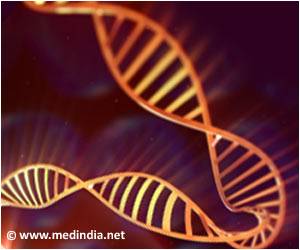How genetics could explain why different environmental exposures can trigger the onset of different forms of rheumatoid arthritis, reveals a new international study.

Publishing their findings in the journal American Journal of Human Genetics, they say that more accurate clinical testing is now needed to better identify the less-well understood type of rheumatoid arthritis and to prevent it being misdiagnosed.
Rheumatoid arthritis is a serious inflammatory form of arthritis, affecting almost 400,000 people in the UK, which causes painful, swollen joints, and in severe cases, considerable disability. It is known to have strong genetic and environmental components.
It was already known that a proportion of rheumatoid arthritis patients test positive for autoantibodies, whilst about 30% remain sero-negative. In this study, the researchers have better defined the genetic distinction between these two disease subtypes: sero-positive and sero-negative rheumatoid arthritis.
They have now established that different genetic variants of a protein that plays a vital role in how the body's immune system fights infection are associated with the two forms of rheumatoid arthritis. This provides clues to the theory that exposure to different infectious agents, such as bacteria or viruses, trigger the different forms of rheumatoid arthritis in susceptible individuals. Sero-negative rheumatoid is less well understood than sero-positive, and patients who have this type of arthritis can be misdiagnosed, leading to inappropriate treatment.
Dr Steve Eyre from the genetics and genomics centre in Manchester commented: "We recognise that rheumatoid arthritis is a complex disease that can have variable presentation and outcomes for different people, in particular in the way they respond to treatment. These findings add to our ability to genetically define subtypes of rheumatoid arthritis, which is an important step towards selecting the best treatment for each patient."
Advertisement
Source-Eurekalert











